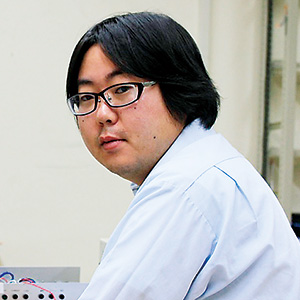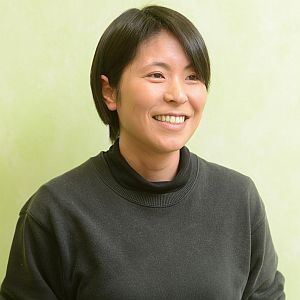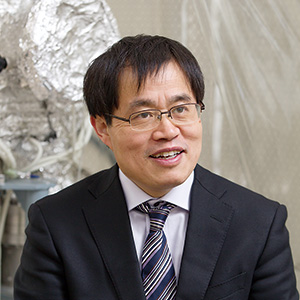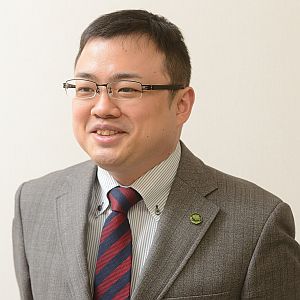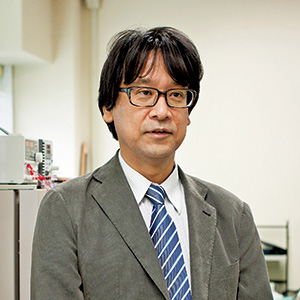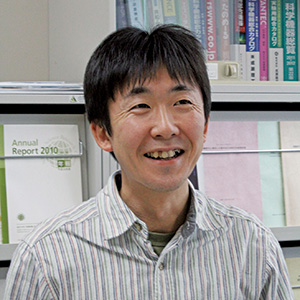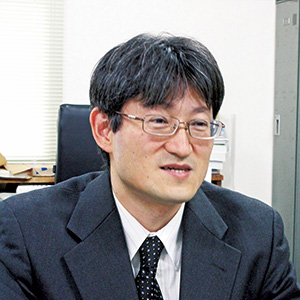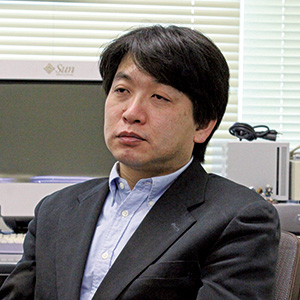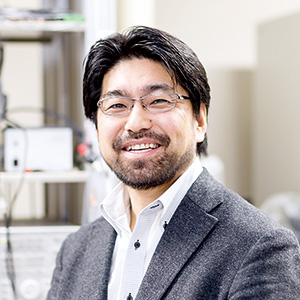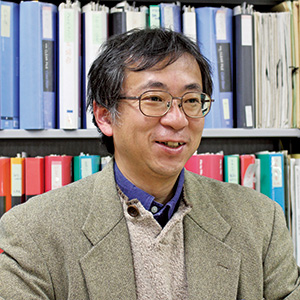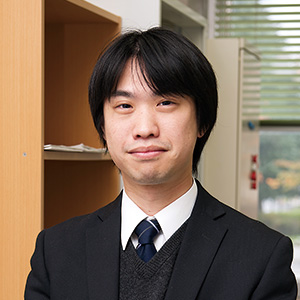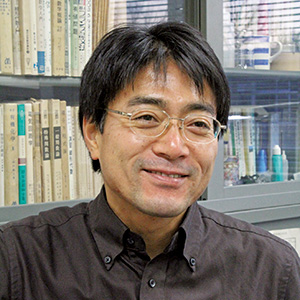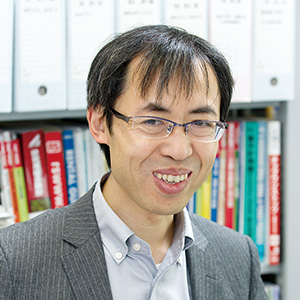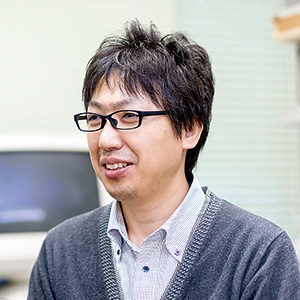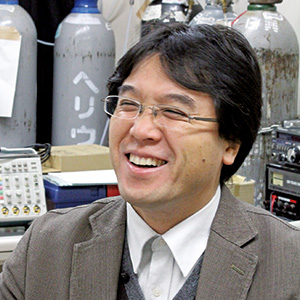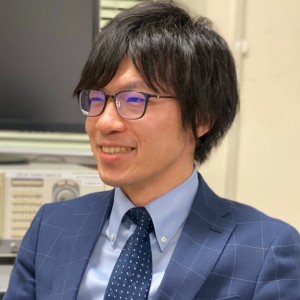Electrical, Electronic, and Communication Engineering
Acquire knowledge of the fundamentals and applications that form the basis of industrial society, including next-generation electronic devices, computers, sensors, communications, and electrical energy, which will lead advanced industries.
What you can learn and research in this course?
The Electrical, Electronic, and Communication Engineering is an academic course to utilize the electronic properties. We pursue the sustainable development of the human society and make out life and the social activities convenient.
In this course, you will learn the electric and electronic engineering, the measurement engineering, the control engineering, and the communication engineering from the basic to the applications. We aim to realize the following technologies: the environmentally friendly and reliable electricity generation and its transportation method; the new electronic devices with an advanced sensor or intelligent functions; and the communication network and wireless technology for the comfortable life by safe, reliable and high-speed data transmission. We foster globally-outstanding engineers and researchers with technological capabilities to solve problems in our modern society.
The Field of the Communication and Electronic System
Students will study the theories and technologies of the electronic devices and electronically applied systems based on the knowledge of the communication network, digital integrated circuit, digital signal processing, and measurement and control engineering. In the field of communication engineering, practical educations for national qualification exams are prepared.
The Field of the Electronic Device
Students will study the theories and technologies of the electronic materials and the electronic devices. We educate and research on the semiconductor engineering, the magnetic sensor which can detect the human or the environmental change, and their application to the medical and the health engineering.
The Field of the Electrical Energy
Students will study the electric energy systematically, such as the generation of electricity and its transportation. We educate and research on the electrical and physical phenomena from the basics to their applications such as the electric discharge, the gaseous plasma, and the high-energy particles.
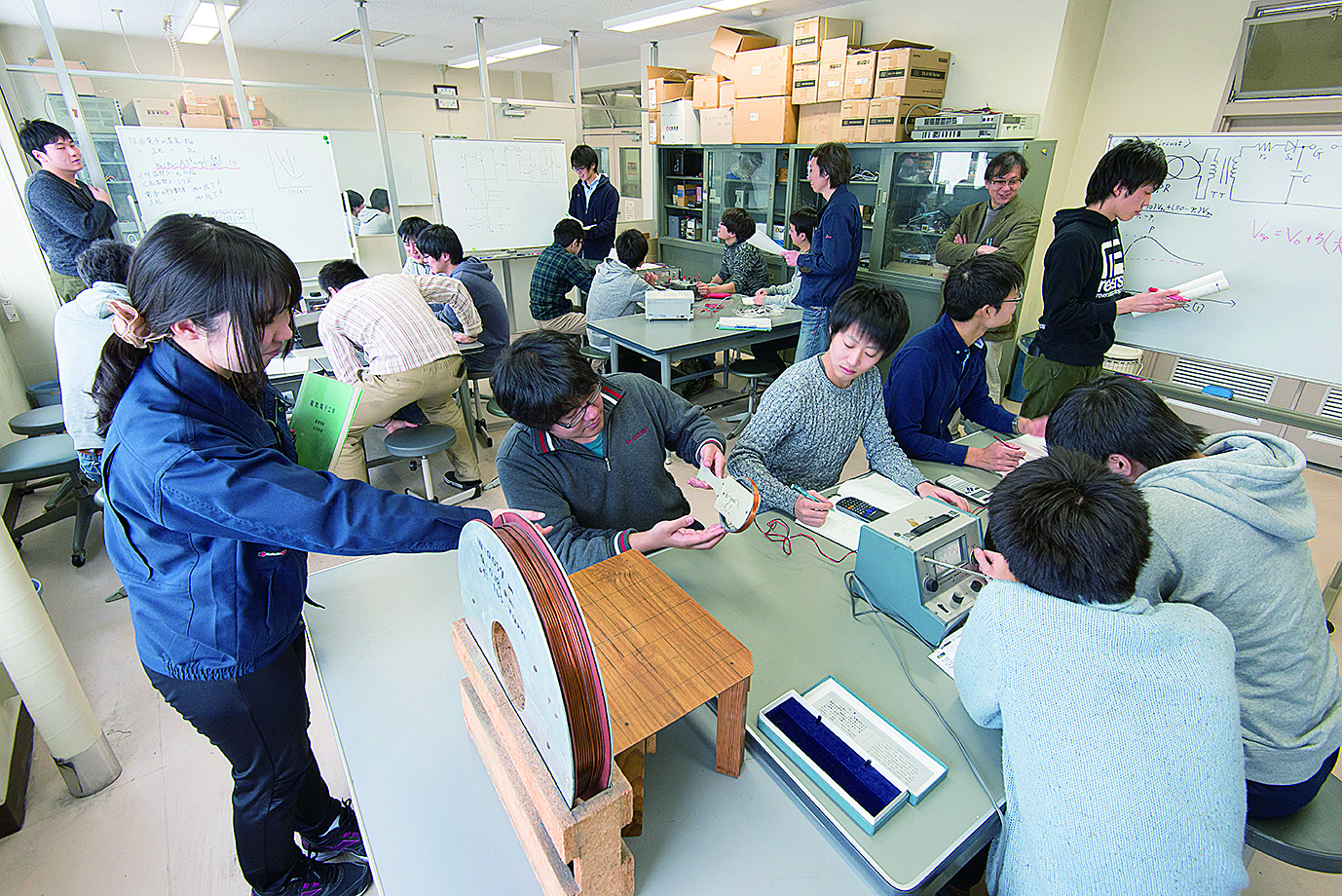
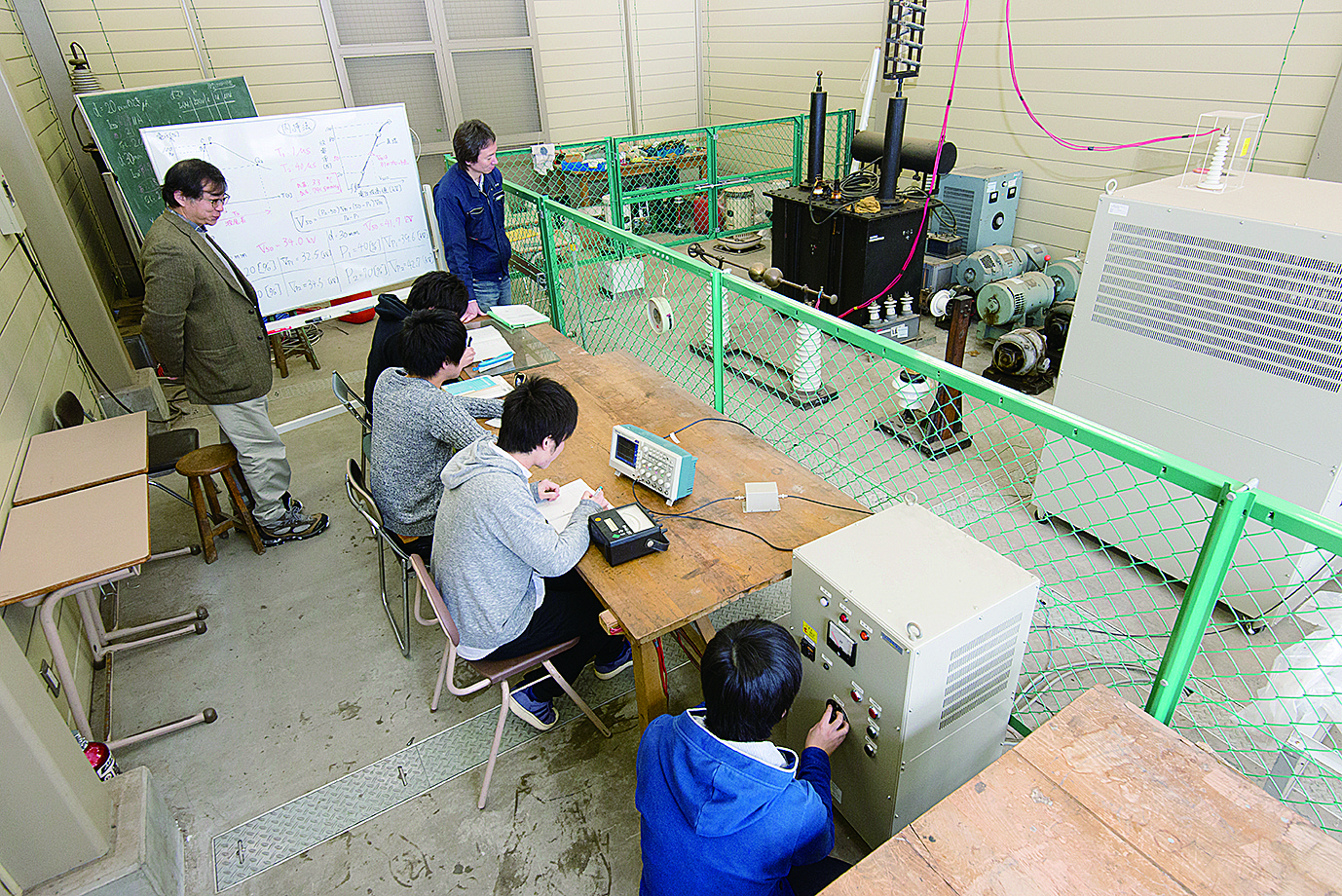
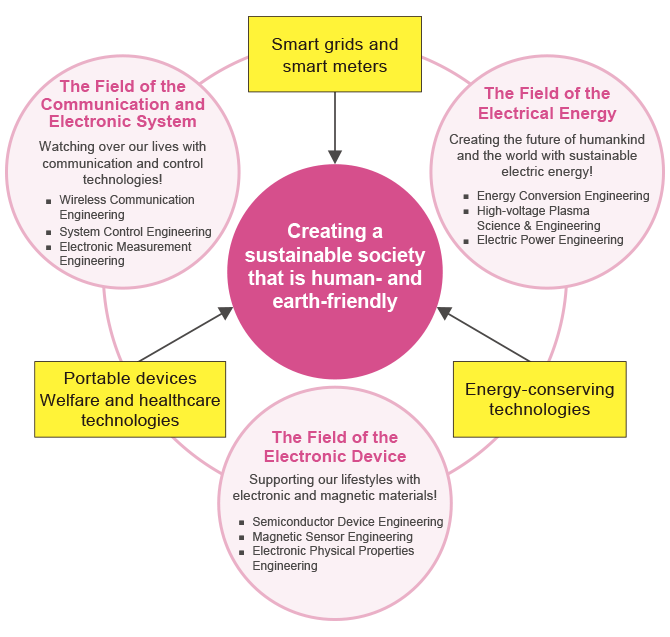
How our research can be applied to society?
Electrical, Electronic and Communication Engineering is an academic field that studies the mysterious behavior of electrons and electricity, which characterize the behavior of all matter, from multiple perspectives and how they can be used to benefit society. The knowledge and skills acquired in this course are essential for electric energy, electronic devices, communication and system control, which are the basis of prosperity in modern society, and are applicable worldwide. The education in this course is at the global standard (FE/PE) level, and is based on fundamental studies such as electromagnetism, electric circuit theory, electronic circuit theory, and information and communication theory, and includes research and education in a very wide range of fields such as energy conversion, robot control, environmental sensing, information and communication, integrated circuits, semiconductor devices, optoelectronics, and medical equipment. Research and education are conducted in a wide range of fields. Electrical, electronic, and communication engineering is a field that has an infinite scope and contains many seeds for future development. Human resources with such knowledge and skills are needed not only in fields related to electricity, electronics, and communications, but also in all fields such as machinery, chemistry, construction, finance, and transportation. For this reason, not only is the ratio of job openings extremely high, but we also receive recommendations from many large companies. In addition, this course is the only electrical engineering university in Iwate Prefecture. The course has a well-balanced research and education system that covers the electrical fields that support the foundations of modern industry, from the strong electrical field related to electrical energy to the weak electrical field related to semiconductors and information and communication, and thus contributes to the region as a think tank and human resource development center to support the development of the region. In this way, your studies and research in this course will support your activities in a variety of industries, mainly in the field of electrical and electronic communications, in the world, in Japan, and in the region, even after you leave the university.
What this course looks for in students?
The Electrical, Electronic and Communication Engineering course aims to develop human resources with sufficient professional skills to take charge of specialized fields such as renewable energy that considers coexistence with nature, electronic devices that support advanced technologies, and communication networks that support an advanced information society. To this end, this course offers a wide range of education and research, from basic theory to practical technology development. In order to achieve this goal, this course seeks students who have the following abilities and qualities.
- Basic academic skills and the ability to think logically that are appropriate for studying electrical, electronic and communication engineering
- High motivation to study electrical, electronic and communication engineering
- Willingness to play an active role not only in the local community but also on a global scale, and communication skills
What kind of human resource will this course develop?
We nurture engineers and researchers who have the technical skills to solve various problems in modern society and who can be active globally. Electrical, electronics, and communications personnel are needed not only in the electrical field, but also in all fields such as machinery, chemistry, construction, finance, and transportation, which is why there are so many job openings in this field.
What kind of career path is expected after graduation?
Graduates are absolutely needed not only in the electric, electronic, and communication engineering industries but also in the mechanics, chemical, construction, finance, and transportation industries. Therefore, high employment rate has been achieved for a long period. Furthermore, we recommend post-graduate studies to acquire a higher level of expertise. Followings are major fields our graduates have been employed.
- Electricity and electronics
- Energy
- Communications
- Automobiles
- IT
- Transportation
- Medical equipment
- Civil service
- Go on to graduate school, etc.
Curriculum
| First year | Second year | Third year | Fourth year | |
|---|---|---|---|---|
| Specialized Basic Courses |
●Basic Mathematics ●Calculus Ⅰ ●Calculus Ⅱ ●Linear Algebra ●Differential Equations ●Physics Ⅰ ○Chemistry ○Physics Ⅱ |
●Vector Analysis ●Probability and Statistics ●Fourier Analysis ○Complex Analysis |
||
| Electrical, Electronic, and Communication Engineering Course Subjects |
●Electrical Mathematics ●Material Physics of Electronic Materials ●Applied Electrical and Electronic Engineering"Monozukuri" Manufacturing Practicum |
●Circuit Theory Ⅱ ●Circuit Theory Ⅲ ●Electricity and Magnetism Ⅰ ●Electricity and Magnetism Ⅱ ●Digital Electronic Circuits ●Electric and Electronic Measurements ●Energy Conversion Systems ●Basic Electrical and Electronic Engineering Laboratory ●Programming Language and Exercises ●Seminar in English for Electrical and Electronic Engineering Ⅰ ○Telecommunications Theory ○Electronic Devices Ⅰ ○Electronic Devices Ⅱ |
●Electromagnetic Wave Engineering ●Computer Engineering ●Control System Engineering ●Applied Electrical and Electronic Engineering Laboratory ●Software Design of Embedded Systems Practicum ●Hardware Design of Embedded Systems Practicum ○Applied Electronic Circuits ○Telecommunications Networks ○Communication Systems ○Digital Signal Processing ○Semiconductor LSI Engineering ○Optical Electronics ○High-voltage Plasma Engineering ○Electric Device Engineering ○Power Generation Engineering ○Energy Transmission and Distribution Engineering ○Selected Topics in Electrical and Electronic Engineering ○Seminar in Electrical and Electronic Engineering ○Electrical Code |
●Seminar in English for Electrical and Electronic Engineering Ⅱ ●Applied Electrical and Electronic Engineering Advanced Practicum ●Graduation Research ○Electrical Designing and Drawing ○Radio Regulations |
| Common Courses within Science |
●Basic Electrical Theory ●Circuit Theory Ⅰ ○Basic Computer Engineering ○Surveying |
●Analog Electronic Circuits ○Discrete Mathematics ○Logic Circuits ○Mechanics of Materials Ⅰ ○Mechanical Dynamics ○Mechanical Design ○Structural Mechanics Ⅰ ○Environmental Engineering |
||
| Common Courses within the Department | ●Introduction to Soft Path Science and Engineering |
○Ethics for Engineers |
||
|
○Nuclear Engineering ○Quality Control and Industrial Management Plan ○Introduction to Intellectual Property ○Selected Topics in Patent Law |
||||
| ○Internships | ||||
| ○Overseas Training in English for Science and Engineering | ||||
●Compulsory Subjects ○Elective Subjects
Interviews with Students
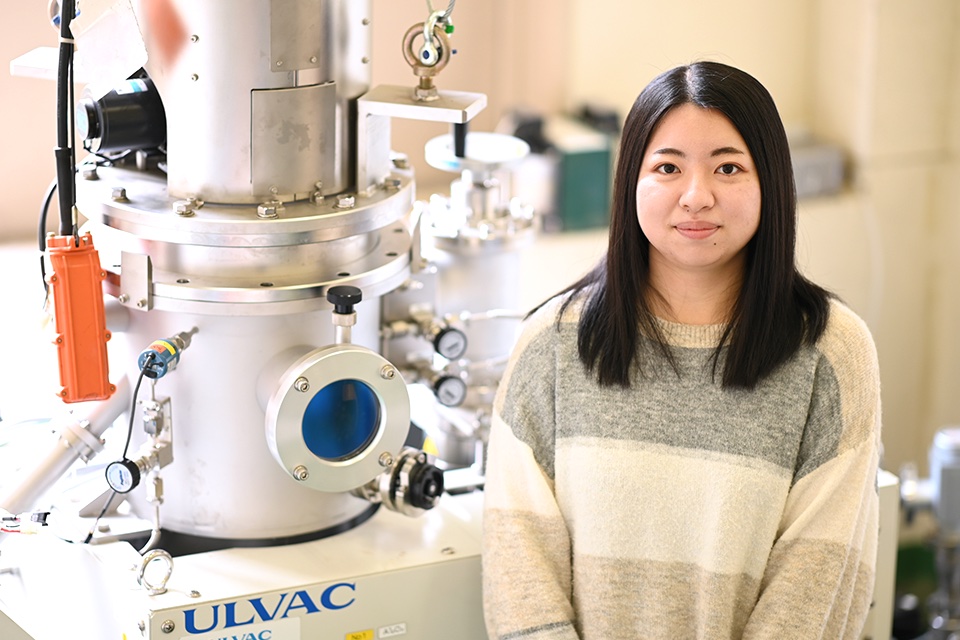
Research on Electrostatic precipitator effective in preventing infection.
ONO Mimona
[from Morioka Chuo High School, Iwate Prefecture]
The reason why I decided to study at the Faculty of Science and Engineering at Iwate University was to collaborate with the local community. As a native of Morioka City myself, I decided that I wanted to acquire more specialized knowledge in mathematics and science, which were my favorite subjects, and make use of this knowledge for the benefit of society.
I am currently conducting research on electrostatic precipitators in which particles and microorganisms are charged in the discharge section by ions generated by high-voltage plasma, and particles and microorganisms are collected on the electrodes by the Coulomb force generated by the electric field between the electrodes. Electrostatic precipitator technology is used in air purifiers, etc. Recently, it has attracted attention in terms of infection prevention, such as the collection of droplets and aerosols in new coronavirus infection. I would like to learn about the development of smaller and safer products so that these technologies can be used more easily in our daily lives.



